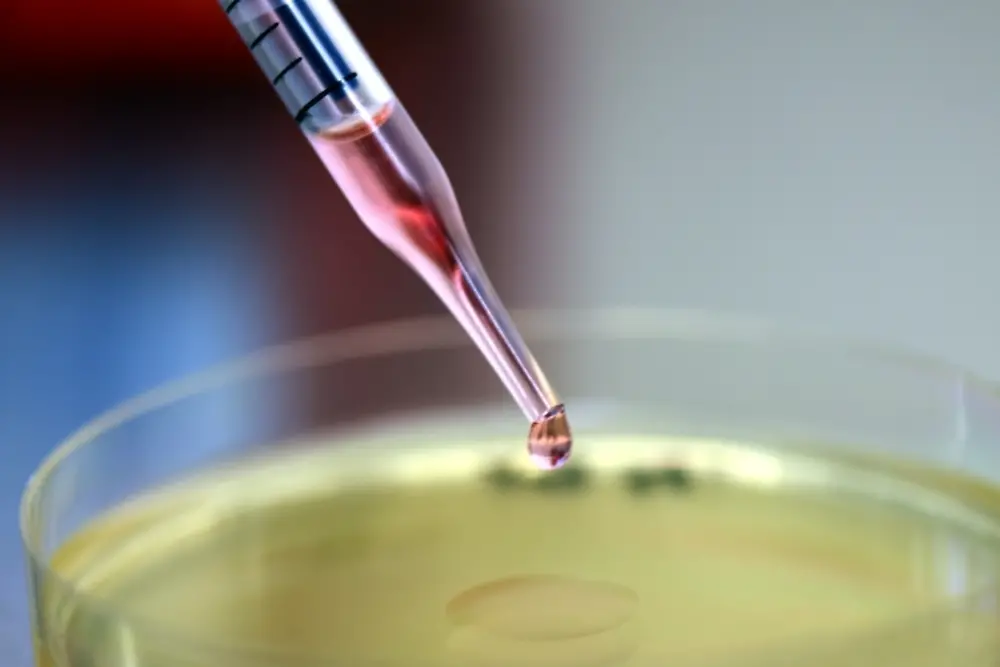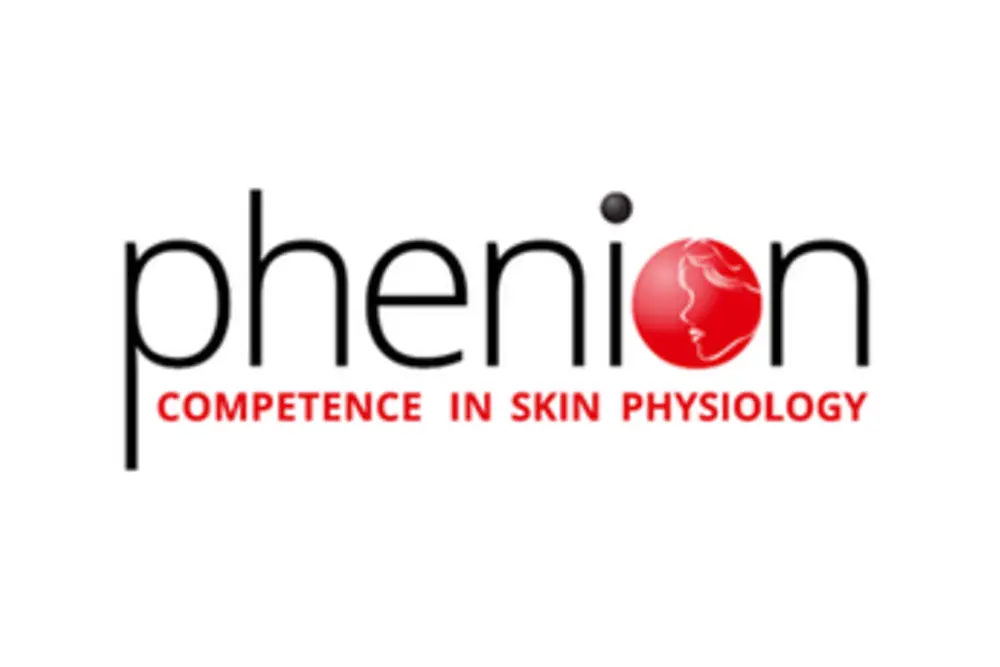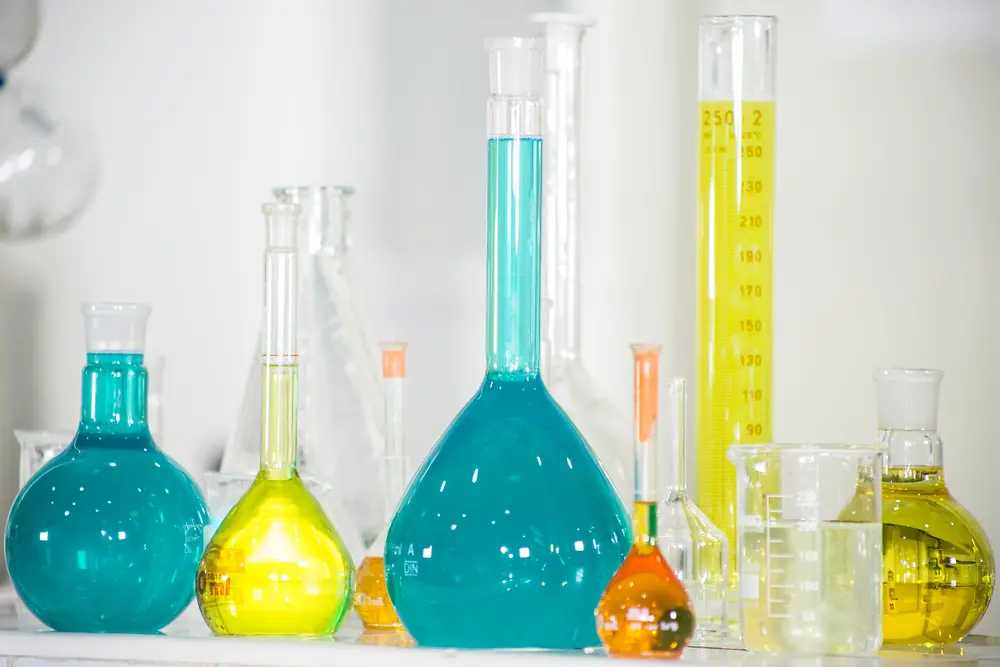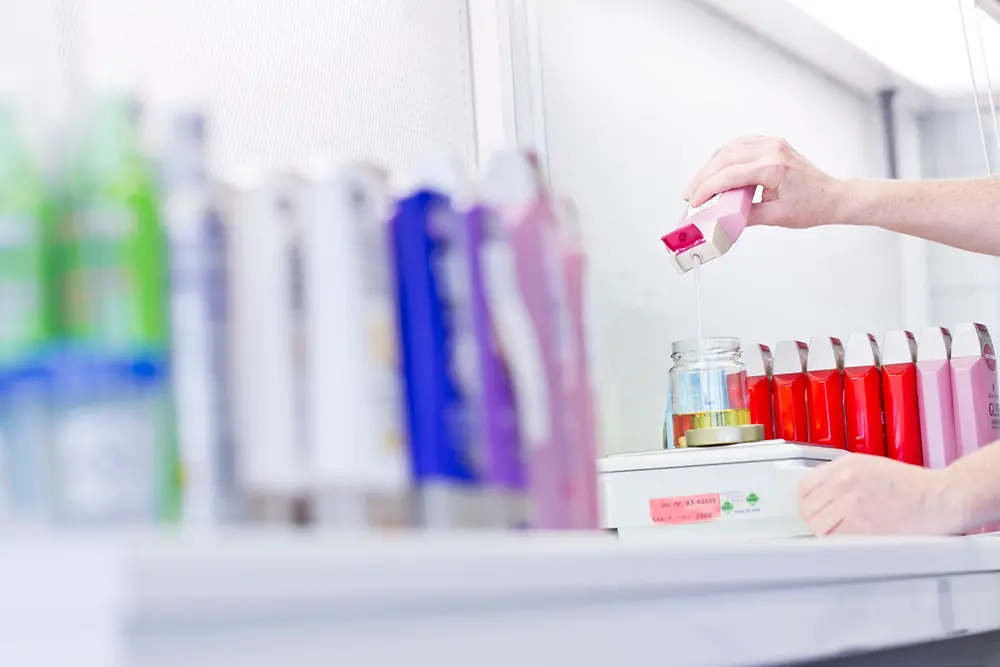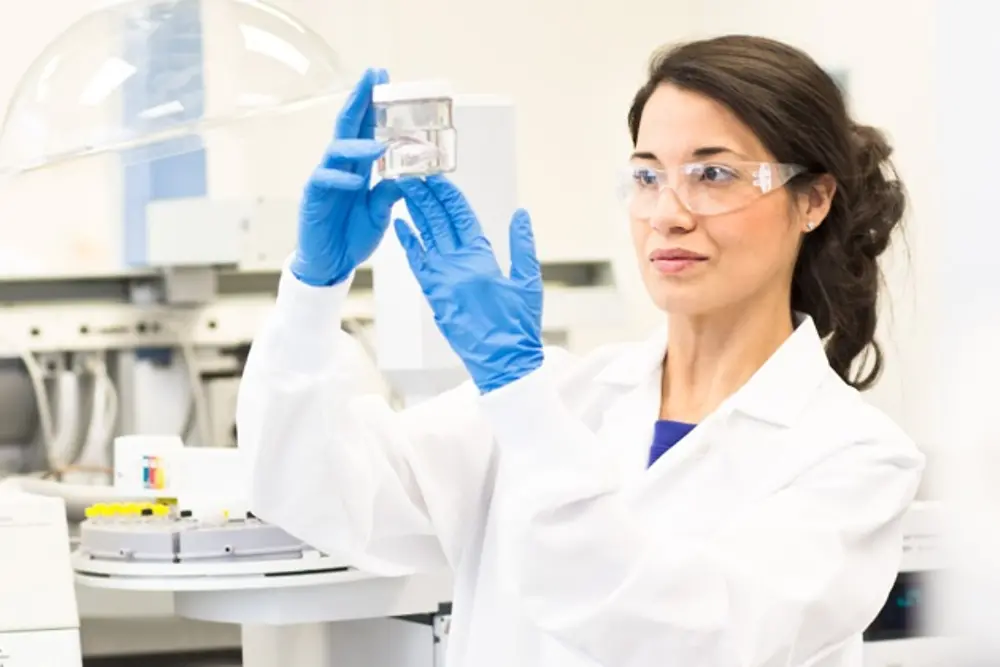The well-being of people is close to our heart – and so is the well-being of animals. We have a clear commitment: We do not test our hair and body care products, our detergents and cleaning products, or our adhesives for industrial customers, consumers and craftsmen on animals. Unfortunately, we cannot claim that animal testing no longer plays any role at all. This is because there are some countries where animal testing is still mandatory to obtain market and/or regulatory approval for hair and body care products, detergents and cleaning products, or adhesives. We are working together with the relevant industry associations to convince the authorities to abandon animal testing. Furthermore, we believe being present in these markets and supporting the non-animal testing agenda will ultimately help to gain acceptance for alternatives to animal testing.
We and other manufacturers in our industry cannot rule out the possibility that an ingredient was tested on animals at some point before it was introduced to the market. In particular, this is because we mostly source our ingredients from suppliers, and manufacture very few ingredients ourselves.
In this context, it is also important to know that ingredients used in products including detergents, cleaning products and adhesives are chemical substances. This means they must be secured by the respective manufacturer in line with the relevant legal requirements for chemicals, such as the REACH regulation in Europe. In some cases, animal testing is still required by law to ensure safety and compatibility for humans and the environment. This is because recognized alternative methods are not yet available for all aspects of testing.
We use recognized, alternative testing methods or existing data to demonstrate the safety of our ingredients. For over 40 years now, we have been intensively committed to developing alternative testing methods ourselves. Henkel was one of the companies that founded the ‘European Partnership for Alternative Approaches to Animal Testing’ (EPAA) in 2005, together with the European Commission and several industry associations. Since then, this partnership has advanced numerous projects that have successfully promoted alternatives to animal testing and made them useable for conducting safety assessments in line with the REACH regulation. We are also a founding member of the International Collaboration on Cosmetics Safety (ICCS), established in 2022. The aim of this global initiative is to advance the adoption of animal-free assessments of cosmetics and their ingredients for human health and environmental safety.
In addition to this partnership at the European level, we have developed, standardized and used a wide range of in vitro methods over the past few decades. One example is the Phenion® skin model that was developed by our scientists. The model is similar to human skin in many anatomical and physiological characteristics and is an ideal basis for predicting effects on humans without animal testing. Our skin model, which was originally developed only for our own use, is now also marketed under the Phenion® brand to interested testing laboratories and research institutes, where it is used to develop additional alternative testing methods.
Computer-aided analyses are also playing an increasingly important role in our testing and assessment strategies. Additionally, we make our expertise available to legislators through a range of associations to shorten the lengthy processes leading to recognition of an alternative test method and to promote the acceptance of proven alternatives.
We promise that we will continue our strong commitment to developing alternative testing methods for the safety of our products, and that we will maintain our efforts in this regard until animal testing of our products is no longer an issue anywhere in the world.
As our consumers often ask us how we ensure the safety of our products without animal testing for certain product categories, we also offer more detailed information and frequently asked questions about our approach in Henkel Consumer Brands business on the following internet pages:






